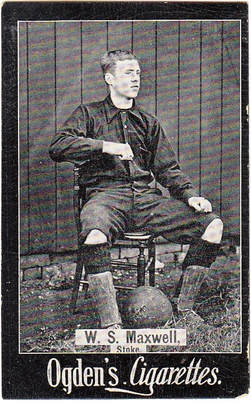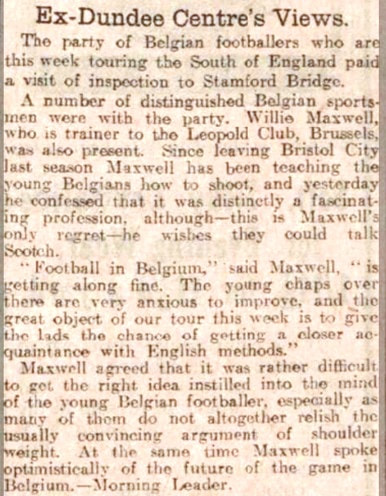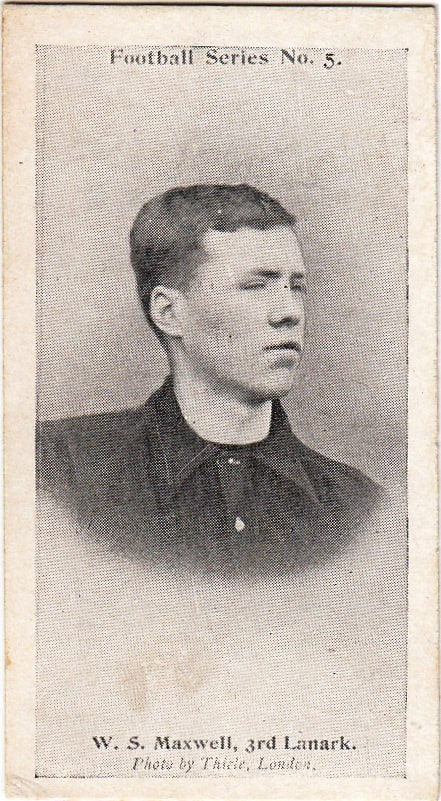Maxwell is a key figure in the development of Belgian football, having gone to Brussels in 1909 after a fine career which included a cap for Scotland against England in 1898. Born in Arbroath, he started out in his home team where he represented Forfarshire aged 18. He played briefly for Hearts and Dundee before joining Stoke in 1895, where he was the club's top goalscorer in five of his six seasons there. Rated one of the top forwards of his era, Stoke turned down serious money for him but after he suffered a knee injury (thereby missing a second cap) he lost some of his speed. He had a season at Third Lanark in 1901-02 before returning to England with Sunderland, Millwall and finally Bristol City, where he won a Second Division championship medal in 1906.
Like many prominent players of the era, he went to the continent to coach and took charge initially of Leopold FC in Brussels. Part of his remit was to teach the players how to shoot, and he also took them on a short tour to England. He was optimistic about the future for Belgian football, according to this article at the end of 1909:
Although his Belgian appointment was curtailed by the First World War, he returned after the conflict and his greatest triumph came in 1920 at the Olympic Games, held in Antwerp. Belgium, as hosts, beat Spain and Netherlands to reach the final against Czechoslovakia. With Belgium leading 2-0 towards the end of the first half, English referee John Lewis sent off a Czech player and the rest of the team promptly walked off in protest. The Belgians were awarded the gold medal, and were essentially world champions (albeit this competition was for amateurs only).
Maxwell remained as national team coach until 1928, after which he coached Malines (Mechelen) for a decade, and finally led Cercle Bruges to the second division title in 1937/38.
He returned to Staffordshire and his wife's home town of Stone, where he is buried, although he died in Bristol.
William Sturrock Maxwell, born Arbroath 21 September 1875, died Bristol 14 July 1940.



 RSS Feed
RSS Feed